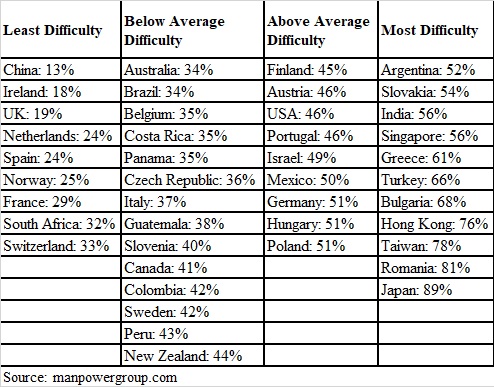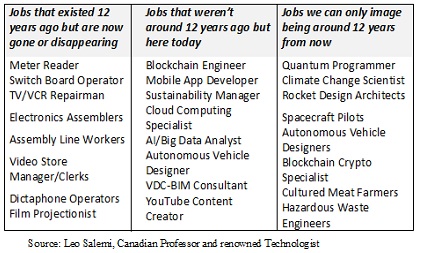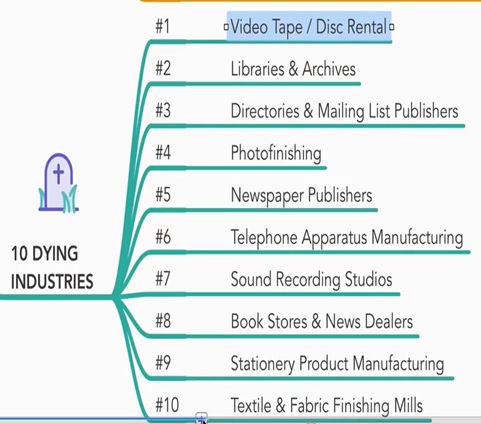by Dr. Nadeem Khan
A talent shortage is affecting companies not only in Pakistan but also worldwide. According to the latest Manpower Talent Shortage Survey by Manpower Group[1], 45% of employers across the globe report that they cannot find the skills they need. The German Economic Institute recently estimated that a shortage of skilled labor, estimated at 440,000 skilled workers, would cost the German economy EUR 30 billion a year in GDP growth (to be precise 0.9 percentage points).
According to Manpower Group’s “Talent Shortage Survey 2018”, the working population of the world in declining and talent pools are shrinking. Technology is evolving faster than ever, changing the skills needed for jobs and shortening the life cycle of those skills. We are also seeing a bifurcation of the workforce — those with in-demand skills versus those with high-supply skills.
The immediate concern is not the number of potential candidates, it’s a talent mismatch. There are not enough sufficiently skilled people in the right places at the right times. According to the report the top 10 jobs for which employers are having difficulty filling globally 1) Skilled Trade Workers (especially chefs/bakers/butchers, mechanics and electricians) 2) Sales Representative 3) Engineers (especially mechanical, electrical and civil engineers) 4) Drivers (especially truck/lorry/heavy goods drivers, delivery/courier drivers, heavy equipment/ construction drivers) 5) Technicians 6) IT (Cyber security experts, network administrator and technical supports) Management/Executives 7) Accounting & Finance Staff (especially book keepers, certified accountants and financial analysts) 8) professionals (Project Management, Lawyers and Researchers) 9) Office Support (Administrative Assistants, PAs and Receptionists) 10) Manufacturing (Production and Machine Operators).
The problem of talent shortage is severe in Japan where 89% employers are experiencing difficulty in filling jobs, while in China only 13% are experiencing the same issue.

Japanese employers face difficulties in hiring skilled and talented workers because Japanese industries are the most sophisticated industries in the world. Japanese manufacturing and services industries believe in innovations and high-performance technologies. They need high performing employees to produce quality products. It is difficult for academia and other related institutes to provide required skilled and talented manpower to industry because of the following reasons:
- Academia and other institutes cannot adopt latest technologies immediately,
- It is difficult to develop capacity of academic staff immediately,
- Financial constraints, and
- Sharing of knowledge and innovation between academia and industry is not seamless.
Talent shortages are impacting organizations ability to meet their client needs; the most likely consequences are expected to be a reduction in ability to serve clients and reduced competitiveness/productivity An increase in employee turnover, lower employee engagement and morale, reduced innovation and creativity in their organization will all lead to higher compensation costs.
Employers are using following strategies to overcome the talent shortage:
- People Practices: employers are revising their people practices to provide more training and development for existing staff; 54% of employers now provide additional training and development.
- Talent Sources: employers are seeking to explore previously untapped sources, young people and candidates who have potential to learn and grow.
- Work Models: employers focus on their talent pipeline and redesigning existing work procedure by sharing work assignment between different employees. Unfortunately, a big percentage of employers are not pursuing any strategy to overcome talent shortages.
It is suggested that unskilled issue could be addressed to a large extent by imparting technical and skilled based education to the youth. No skilled person would be found unemployed, and companies would take benefits from these skilled persons and produce high quality products in Pakistan.
Now, the question is how we train our youth to face future changing environment of employment and reduce the unemployment rate. According to a report published by Dell Technologies and authored by the Institute For The Future (IFTF) and a panel of 20 tech, business and academic experts from around the world, 85 per cent of the jobs that will exist in 2030 haven’t even been invented yet.
12 years ago, not even the experts could have imagined that jobs like Mobile App Developers, VDC Consultants, Cloud Computing Specialists and Block-chain Engineers would be in demand today. The following table below which lists some of the past, present and future positions and answer the question, how do we prepare for jobs that don’t exist yet? Especially, when things are changing so fast.

Preparing for a job that doesn’t exist yet is compounded by the fact that students entering a 4 year program in 2019 may not have the skills that industry is looking for when they graduate in 2023. For example, how many students who started in 2014 chose a career path that would train them to become a Blockchain Engineer today? The demand for Blockchain professionals, (Economist, Business and IT graduates and Engineers) has increased by 400 percent since late 2017.

Suggestions to address the shortage of talent issue
- Say hello to the hybrid workforce
The hybrid workforce is a combination of full-time employees and contractors, which allows service companies to take advantage of their contractors, as well as use their trusted full-time technicians, which increases when the workload is increased. Service companies are primarily moving from full-time dedicated staff to third-party independent contractor companies. Having this flexible workforce (i.e., contractors) gives companies a better chance of growing and increasing profitability than previously thought. We can easily create hybrid workforce environment by adding gig workers in organizations and human/machine partnerships.
- Create an employee referral program
It is no secret that some of the most successful hires are referred by existing team members. And this is true in almost every industry. In fact, according to Career Builder, 82% of employers’ rate employee referrals as the top source of ROI when it comes to hiring. Which is why developing a well-structured employee referral program can make a big difference when it comes to building a robust talent pipeline. The best way to do it would be to offer clear incentives to both full-time and temporary employees, leverage social media whenever possible and keep track of where the best referrals are coming from.
- Adopt 4Bs Model (Build, Buy, Borrow and Bridge)
Build – Invest in learning and development to grow your talent pipeline
Buy – Go to external market to find the best talent that cannot be built in-house in the timeframe required,
Borrow – Cultivate communities of talent outside the organization, including part-time, freelance, contract and temporary workers to complement existing skills,
Bridge – Help people move on and move up to new roles inside or outside the organization.
Current formal and informal educations system need revolutionary changes according to top fastest growing industries of the world. These industries are: Green energy, E commerce, Consulting, Virtual Reality and augmented VR, Bio-tech, Elder care, Cyber Security and Fin Tech.
Update
Cloud Skills demand is growing very fast and sufficient job opportunities in the IT industry is creating. In a recently published blog (How to Weather the Cloud Skills Shortage) by TOPTAL research, claims that cloud skills shortage is growing and employers cannot find skilled talent in this most demanding field. The blog has very interesting statistics regarding Cloud Skills Shortage and also identifies the seven most demanding cloud skills. https://www.toptal.com/insights/future-of-work/-aws-cloud-skills-shortage
[1] https://manpowergroup.com/ ; https://go.manpowergroup.com/talent-shortage
Good suggestions…. however, there is a dire need of curriculum engineering at all levels…. education system needs to be overhauled…. At least one skill learning must be mandatory for each student at the secondary level. Special packages must be offered to such kind of students and teachers by the government. No student be considered for admission to medical and engineering unless he attains a good skill learning level matching with the job market.
From: Col Dr Qaim Raza Jaffry (R) ex- National Defence university Islamabad
Dear Dr Nadeem,
Its really the most thought provoking, i appreciate your critical thinking regarding skill shortages in the world which is growing day by day. Dr sahib, u have very well addressed the root causes of these challenges.
Just one addition from my side, that is, instead of developing carbon copies of teachers and textbooks in the form of students, we need to promote creativity, critical thinking and innovation.
Stay blessed.
Prof. Dr. M. Majid Mahmood Bagram
Dr.Nadeem Khan,
Congratulations on producing such a brilliant piece!
Given one of the youngest populations, we can train Pakistani youth in the requisite skills,futuristically for the global economy. I wish this article to take the form of a presentation to be given to all the major stakeholders from the industry and academia.
You have very aptly covered the focal points requiring interventions besides suggesting some possible solutions, which are indeed well thought out and practical.
All in all a very well articulated article with great insight and foresight!
I look forward to having the pleasure of reading more of such insightful articles, so keep them coming,please.
Best wishes.
Dr.Hamid Khattak
Dear Sir,
Very interesting, good job and thanks for sharing such a good blog.
Enjoyed reading it, really explains everything in detail. It is very interesting and effective. We are having too much potential, the only thing which is required is to go for innovation in work places. As suggested in your blog technologies like Block Chain, VR, Cloud services, Mobile applications, Robotic processes etc. Nations like Japan, Singapore and others achieved it through innovations and their hardwork.
Thank you and good luck for upcoming articles.
Best Wishes,
Aqeel
Excellent analysis. This should be the top priority for the government of Pakistan. Whether it is trade, tourism or any other services, we can excel if we have well skilled people. This issue needs to be highlighted through electronic and print media.
Interesting area has been highlighted. Dear sir how the talent shortage can be enhanced? Withou training for teachers. This area has been ignored from primary to higher education in Pakistan. Which models should be followed for training of teachers?
Interesting and thought provoking.
This is the real problem from which academia has kept its eyes off from long.
Reference to the article War of Talent: The Skills Gap by Dr. Nadeem Khan,
It has been observed that the war of new technology is red alert for the employees who are not growing their selves with the new technology. Presently, only skilled people are getting the job easily however un-skill people are getting unemployed day by day but after 12 year the situation will be different. The specialized skill-level people will take over the jobs of skilled people and skilled people will be unemployed because the new upcoming generation will have the updated technology on their disposal.
The only way to survive in upcoming years is to upgrade ourselves with latest technology and knowledge. The concerns needs to upgrade/ change the course & syllabus of our education system in order to get skilled degree holder. The education system must be upgraded with the knowledge of those sectors which are growing in upcoming years i.e. specialist, engineers, climate change scientist etc.
Discrimination must not exist i.e. A level, government syllabus and Islamic madrasas. There has been same course of study/ syllabus for all the students for all regions of Pakistan.
Butt sb. Absolutely true. We have to change our curricula and teaching methodology even class room environment. Thank you for your valuable comments.
Great. Currently there is a need for skilled work force. This is the only way we can achieve sustainable development goals.
Very impressive sir.
In the game of Talent Acquisition, the War for skills is the only war that matters.
Way more to go.
Very provoking and negotiable one sir 👍🏻
Knowledge and talent impact is higher then any thing . The way you uplift your self matters. The new war has started as it self demand change and creativity and skills that enhance human capabilities very aggressively .
Very impressive one
Absolutely True👍
Amazing Write-up Sir!👌
in the technological innovative spectrum of global markets, they peculiarly focuse on the talented and skilled workforce, which drive to achieve organisation’s goals. we need to produce generation with effective skills and innovative minds…!!!
Sir, it’s a very appreciative step to enlighten the ignorant site of our system. Your this effort will color the painting of our faded economy and will help to bring the attention of concerned authorities to fill the gap between the obsolete, present and future employment opportunities.
Very interesting and informative article sir. Organisations are struggling to find the right people to fill the vaccines.There is a need for innovative thinking and skilled work force.
Very impressive and informative!!!
Dear Sir,
In the game of Talent Acquisition, the War for skills is the only war that matters.
Way more to go
Very interesting, good job and thanks for sharing such a good blog.
Thank you, Dr. Nadeem Khan, for sharing good write up.
I agree with the points highlighted in the article. I am experiencing similar difficulties in Polish Market as you mentioned in the article and similar feedback are being received from the neighboring countries.
Moreover, a hybrid workforce is a good solution but in the era of 5G, it can be considered as a workaround or an easy way to solve the ongoing capacity problems. This is not a persistent solution. In the long run, it creates more waste and generates more cost because of software maintainability and transfer domain knowledge among different teams.
Excellent attempt on describing the fast changing environment.
Please write next article on how to convince parents for NOT guiding (forcing) their children to attain conventional degrees.
It’s all force of home loan and government policy inefficient to achieve to the people who’s not creative employment here most unemployment but can join to work
Shortage of Talent are increase with the awareness.The education system will be Upgraded in different form.The student should known what they choose for their life.